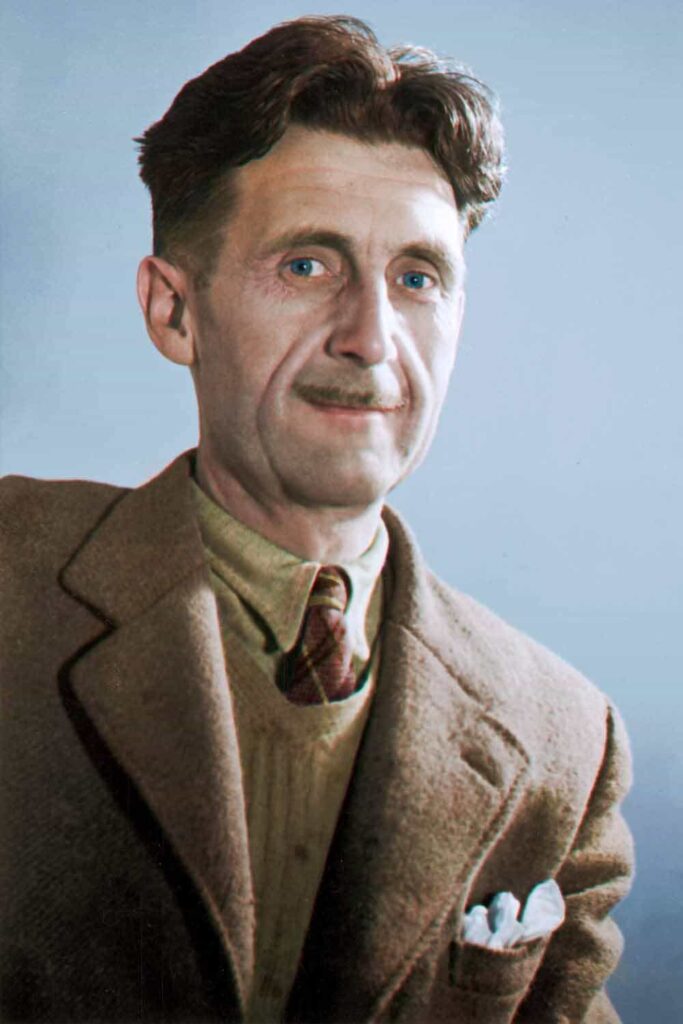
George Orwell: Unveiling the Penetrating Observer of Society
In the realm of literature, certain names are synonymous with incisive social commentary and thought-provoking narratives. George Orwell stands as a luminous figure in this regard, renowned for his ability to scrutinize society’s nuances and unveil truths hidden beneath the surface. This article delves into the life, works, and enduring relevance of George Orwell, a literary giant whose insights into power, manipulation, and truth remain as pertinent today as they were during his time.
1. George Orwell Books
1.1. Novels
Burmese Days (1934)
A Clergyman’s Daughter (1935)
Keep the Aspidistra Flying (1936)
Coming Up for Air (1939)
Animal Farm (1945)
Nineteen Eighty-Four (1949)
1.2. Non-fiction
Down and Out in Paris and London (1933)
The Road to Wigan Pier (1937)
Homage to Catalonia (1938)
Politics and the English Language (1945)
Orwell’s Review of Adolph Hitler’s Mein Kampf
Fifty Orwell Essays
2. George Orwell Biography
2.1. Early Life and Formative Influences
Born as Eric Arthur Blair on June 25, 1903, in Motihari, British India, Orwell’s upbringing greatly shaped his future perspectives. The British imperial presence in India exposed him to the complexities of colonialism, fostering his awareness of political dynamics from an early age. Later, his education at Eton College, marked by financial difficulties, acquainted him with the hierarchies of class and privilege, themes that would weave through his literary tapestry.
2.2. The Path to Becoming George Orwell
Adopting the pen name George Orwell, the young writer embarked on a journey that melded his commitment to social justice with his literary prowess. His experience as a colonial policeman in Burma and his time spent among the working class in Paris engendered a firsthand understanding of societal disparities. This understanding formed the bedrock of his works, infusing them with authenticity and relevance.
2.3. Orwell’s Magnum Opus: “Nineteen Eighty-Four”
The publication of “Nineteen Eighty-Four” in 1949 marked a watershed moment in Orwell’s career. This dystopian masterpiece presented a chilling vision of a totalitarian regime that manipulates language, history, and reality itself to maintain control. The concept of “Big Brother” and the infamous phrase “doublethink” entered the lexicon as Orwell’s critique of authoritarianism and the erosion of truth resonated deeply with readers. The novel’s themes of surveillance, propaganda, and the erosion of individual autonomy are unsettlingly applicable to contemporary society.
2.4. Animal Farm: A Parable of Power
In “Animal Farm” (1945), Orwell employed allegory to illuminate the nature of power and its corrupting influence. The story, set on a farm, serves as a parable for the Russian Revolution and its transformation into a totalitarian state. Through the rise and fall of the animals’ rebellion, Orwell dissected the manipulation of ideals, the perversion of leadership, and the fragility of democracy. The novella’s impact extends beyond its historical context, offering insights into the cyclical nature of power struggles.
2.5. Down and Out in Paris and London: Social Realism
Orwell’s non-fiction work “Down and Out in Paris and London” (1933) showcased his flair for social realism. Drawing from his own experiences of poverty and destitution, the book shed light on the lives of the marginalized. Orwell’s ability to intertwine personal narrative with a broader critique of social inequalities allowed readers to confront uncomfortable realities often overlooked.
2.6. Language and Truth: “Politics and the English Language”
Orwell’s engagement with language extended beyond his fictional narratives. In his essay “Politics and the English Language” (1946), he dissected the manipulation of language as a tool of political control. Orwell’s admonition against vague, inflated, and misleading language resonates in today’s era of media saturation and information distortion. His call for clarity and precision remains a rallying cry for those who seek to maintain a grasp on truth amid the maelstrom of rhetoric.
2.7. Legacy and Contemporary Relevance
The legacy of George Orwell is palpable in the enduring relevance of his works. His prescient insights into the manipulation of truth, the danger of unchecked authority, and the erosion of civil liberties have grown only more pertinent in our digital age. The term “Orwellian” has become synonymous with dystopian surveillance and government overreach, reflecting the lasting impact of his visions.
2.8. Personal and Political Convictions
Orwell’s commitment to justice extended beyond his writing. His participation in the Spanish Civil War, chronicled in “Homage to Catalonia” (1938), demonstrated his willingness to physically engage in the struggle against totalitarianism. His experiences in Spain, where ideological factions clashed and propaganda obscured realities, informed his skepticism of political orthodoxy and his emphasis on personal observation.
2.9. Conclusion: A Literary Torchbearer
In the vast landscape of literature, George Orwell stands as a torchbearer of truth, a chronicler of societal intricacies, and a forewarner against the dangers of complacency. His ability to dissect power dynamics, expose manipulation, and illuminate the individual’s role in shaping society renders his works timeless. As readers continue to grapple with issues of surveillance, misinformation, and the ever-changing landscape of truth, Orwell’s oeuvre serves as a compass, guiding us through the labyrinthine corridors of human nature and societal evolution. In celebrating Orwell, we honor a writer who dared to challenge authority, confront uncomfortable realities, and remind us that the preservation of liberty requires constant vigilance.

